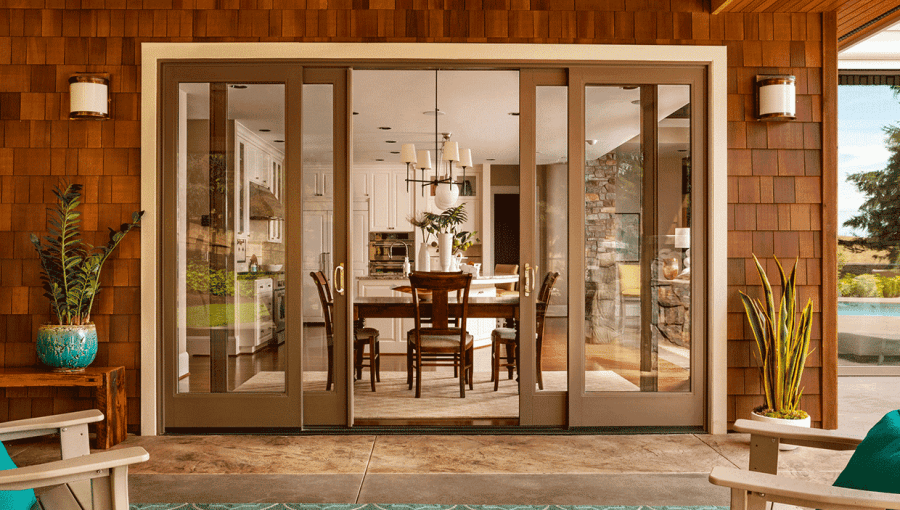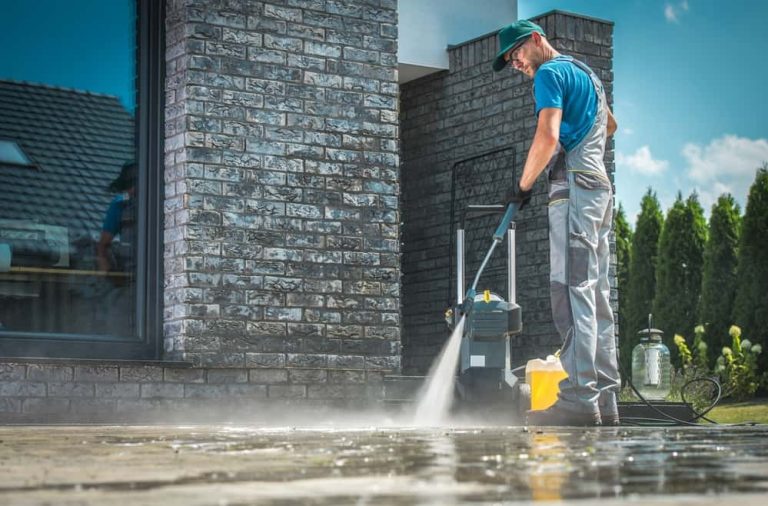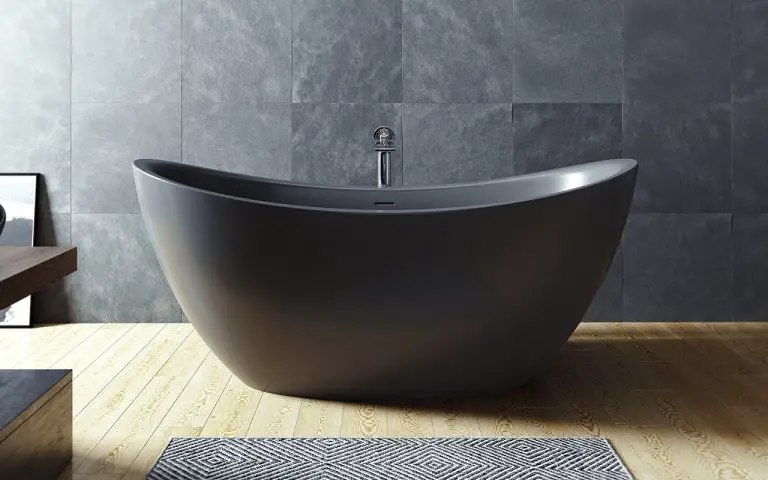How To Soundproof Glass Door
Soundproofing a glass door can be a tricky task since glass isn’t the best soundproofing material. However, there are ways to reduce the amount of sound that passes through a glass door. Whether you are looking to create a quiet space for work or just want to make a room more peaceful, here are some tips on how to soundproof a glass door. You will need to install special soundproofing materials, such as acoustic blankets, acoustic foam, and soundproofing sealant, to reduce the amount of sound that passes through the door. Additionally, you can hang heavy curtains or use weatherstripping to create an additional layer of soundproofing. With a few simple steps, you can turn your glass door into a soundproof barrier.
Overview of Soundproofing Glass Door
Soundproofing a glass door can be tricky, as glass is notoriously hard to soundproof. Fortunately, there are several strategies you can use to reduce the sound that passes through a glass door. By utilizing acoustic barriers, mass-loaded vinyl, and weatherstripping, you can dramatically reduce the noise that travels through your door. In this article, we’ll provide an overview of the basics of soundproofing a glass door and explain how to make your glass door soundproof.
First, you’ll need to understand the basics of soundproofing. Soundproofing is the process of reducing noise levels by blocking sound waves from entering or leaving a room. While soundproofing is more commonly associated with acoustic walls, it can also be applied to glass doors. To do this, you’ll need to use barriers and materials that absorb sound, such as acoustic blankets, foam panels, and mass-loaded vinyl.
When soundproofing a glass door, you should also consider using weatherstripping. Weatherstripping is a material used to seal gaps between two surfaces, such as the gap between your door and the frame. It helps to reduce the amount of noise that passes through the opening and can be used in conjunction with other soundproofing methods.
Finally, you’ll want to consider adding an acoustic sealant to your glass door. Acoustic sealant is a specialized material that is designed to absorb sound waves and reduce noise levels. It’s important to note that sealants are not a substitute for weatherstripping and should be used in addition to other soundproofing methods.
By following these steps, you can soundproof your glass door and enjoy a quieter home or office. With the right materials and tools, you can make your glass door soundproof and reduce the amount of noise that passes through it.
Selecting the Right Soundproofing Material
When it comes to soundproofing a glass door, choosing the right soundproofing material is essential. The material you select should be able to absorb and dampen sound waves, rather than reflect them into the room. Different soundproofing materials have different levels of sound absorption, and it is important to consider the amount of sound you want to reduce before selecting a material. It is also important to select a material that is easy to install and will not require a lot of maintenance.
Some of the most popular soundproofing materials for glass doors include acoustic foam, rubber mats, and mass-loaded vinyl. Acoustic foam is lightweight and flexible, and it is an effective material for absorbing sound waves. Rubber mats are highly durable and can be easily installed in any space. Mass-loaded vinyl is a heavy material that is effective at blocking sound waves, and it is often used in commercial applications.
No matter which soundproofing material you choose, it is important to ensure that the material is properly installed. If the material is not installed correctly, it may not be as effective at reducing sound levels. Additionally, it is important to consider the cost of the material, as some materials can be quite expensive. With the right soundproofing material, you can effectively reduce the amount of sound coming through your glass door.

Credit: unionacoustic.com
Preparing the Glass Door for Soundproofing
Soundproofing a glass door is not an easy task – you need to make sure the door is properly prepared and sealed before you can begin. To get started, inspect the glass door for any breaks or cracks, and repair them with a sealant or epoxy. Once that’s done, apply a weatherstrip around the entire perimeter of the door. This will help reduce the amount of air and sound that can pass through and create a tight seal. Another important step is to install an acoustic sealant in the frame of the door before installation. This will help absorb sound and reduce vibrations. Finally, if you are using a heavy-duty soundproof glass door, make sure to install it with heavy-duty hinges to ensure it is securely in place. Taking these steps will ensure you get the most out of your soundproofing efforts.
Installing Soundproofing Seals and Strips
Having a glass door in your home or office can provide a great view, but it can also be a source of sound disturbances. To soundproof a glass door, one of the best solutions is to install soundproofing seals and strips. These seals and strips can help reduce the amount of noise that enters your space and prevent sound from escaping. They are easy to install and can be used on existing doors or included in the design of new doors.
Soundproofing seals and strips can be made from a variety of materials, including rubber, foam, and metal. They can be installed around the perimeter of the door and can be customized to fit the size and shape of the door. Seals are typically installed on the outside of the door, while strips are installed on the inside. The type of material used will depend on the level of soundproofing needed and the budget.
Soundproofing seals and strips not only help reduce noise but can also help improve the overall energy efficiency of the space. By creating a tighter seal around the door, you can reduce the amount of energy that is lost through the door. This can help reduce heating and cooling costs and make your space more comfortable.
Soundproofing seals and strips are an easy and cost-effective way to reduce noise and improve energy efficiency in your home or office. They offer quick installation and can be used on any type of glass door. With the right materials and installation, you can enjoy a quieter, more energy-efficient space.
Applying Soundproofing Paint
When looking for ways to soundproof a glass door, one solution to consider is soundproofing paint. This type of paint is designed to reduce the amount of sound that passes through a surface. It works by absorbing sound waves and reflecting them away from the door. This helps to reduce the amount of noise that enters the space through the glass.
Soundproofing paint is easy to apply and can be used on both interior and exterior glass doors. It can be sprayed on or rolled onto the door, depending on the type of paint. It is also relatively inexpensive and provides a good degree of sound insulation. Additionally, soundproofing paint can be painted over or covered with wallpaper to create a more aesthetically pleasing look.
However, it is important to note that soundproofing paint is not a complete solution for soundproofing a glass door. It is best used in combination with other soundproofing methods such as insulation and acoustic panels. Additionally, the type of paint used must be suitable for the type of glass used in the door.
Overall, soundproofing paint is an effective and affordable way to reduce the amount of sound passing through a glass door. It can be used in conjunction with other soundproofing materials to create a more effective soundproof barrier.
Using Acoustic Foam Panels
Glass doors are a great way to let natural light into a space, but they can also let in unwanted noises. Fortunately, soundproofing glass doors is possible. One way to reduce noise coming in through a glass door is to use acoustic foam panels. Acoustic foam panels are designed to absorb sound waves and block out unwanted noise, making them a great way to soundproof glass doors.
When installing acoustic foam panels on a glass door, it’s important to consider the size and shape of the panels. For the most effective noise reduction, the panels should be cut to fit the exact size and shape of the door. Additionally, the panels should be placed symmetrically on the door to ensure that sound waves are evenly absorbed.
When attaching acoustic foam panels to glass doors, it’s best to use a strong adhesive that will hold the foam panels in place. Additionally, it’s important to make sure that the adhesive is safe for use on glass, as some adhesives can damage the glass surface.
In addition to using acoustic foam panels, there are other ways to soundproof glass doors. One option is to install a soundproof curtain, which is designed to hang in front of the door and absorb sound waves. Additionally, there are special sound-dampening seals that can be placed around the edges of the door to reduce noise coming in through the cracks.
Soundproofing glass doors can be a great way to reduce unwanted noise levels. With the right materials and a little bit of effort, you can make sure that your glass doors are soundproof and provide you with a peaceful and quiet space.
Adding Mass to the Glass Door
Soundproofing your glass door can seem like an impossible task. However, that doesn’t have to be the case. One of the most effective ways to soundproof a glass door is to add mass to it. Adding mass can be done in a variety of ways, such as adding a wooden frame or adding a vinyl soundproofing material. Adding mass helps to absorb sound waves before they reach the glass door, resulting in soundproofing that is both effective and efficient.
When adding mass to your glass door, it’s important to ensure that the material you choose has a high density. This will help to maximize the soundproofing benefits. Additionally, make sure that the material you choose is designed for soundproofing applications, as this will further improve the soundproofing. Additionally, it’s important to make sure that the material is properly installed. If the material is not properly installed, it may not be as effective at soundproofing the glass door.
By adding mass to your glass door, you can drastically reduce the amount of sound that can pass through it. This will help to make your environment more peaceful and quiet, which can dramatically improve your quality of life. Furthermore, adding mass to your glass door is a relatively simple and inexpensive process, making it an attractive option for those looking to soundproof their glass door.
Testing the Soundproofing Effectiveness
Soundproofing a glass door may seem impossible, but it can be done. To determine the effectiveness of the soundproofing, you must first test it. Start by closing the door and then making a noise from the other side. If you hear any sound, you know that the soundproofing has not been properly installed. For a more accurate measure of soundproofing, you can use a sound meter to test the decibel level of the noise on the other side. If the sound level is higher than the manufacturer recommends, you need to add more soundproofing material or replace the existing material. Additionally, make sure to use high-quality materials so that the soundproofing is effective. Lastly, seal any gaps around the door frame to prevent sound leakage. With these measures, you can ensure that your glass door is soundproofed and you can enjoy a peaceful and quiet environment.
FAQs About the How To Soundproof Glass Door
Q: What materials are needed to soundproof a glass door?
A: To soundproof a glass door, you will need an acoustic foam panel, a piece of soundproofing material, and adhesive.
Q: How do I install soundproofing materials on a glass door?
A: First, measure the glass door and cut the acoustic foam panel and soundproofing material to fit the door. Then, apply the soundproofing material to the other side of the door and secure it with adhesive. Lastly, attach the acoustic foam panel to the inside of the door.
Q: Does soundproofing a glass door make a difference?
A: Yes, soundproofing a glass door can make a significant difference in noise reduction. Soundproofing materials can help absorb and deflect sound waves, resulting in a quieter environment.
Conclusion
Soundproofing a glass door is a great way to reduce the amount of noise that passes through the door and into your home. Depending on your budget, there are several ways to soundproof a glass door, such as installing acoustic curtains, soundproofing materials, and weatherstripping. With a little bit of effort and the right materials, you can drastically reduce the amount of sound passing through your glass door, creating a quieter and more peaceful environment in your home.







